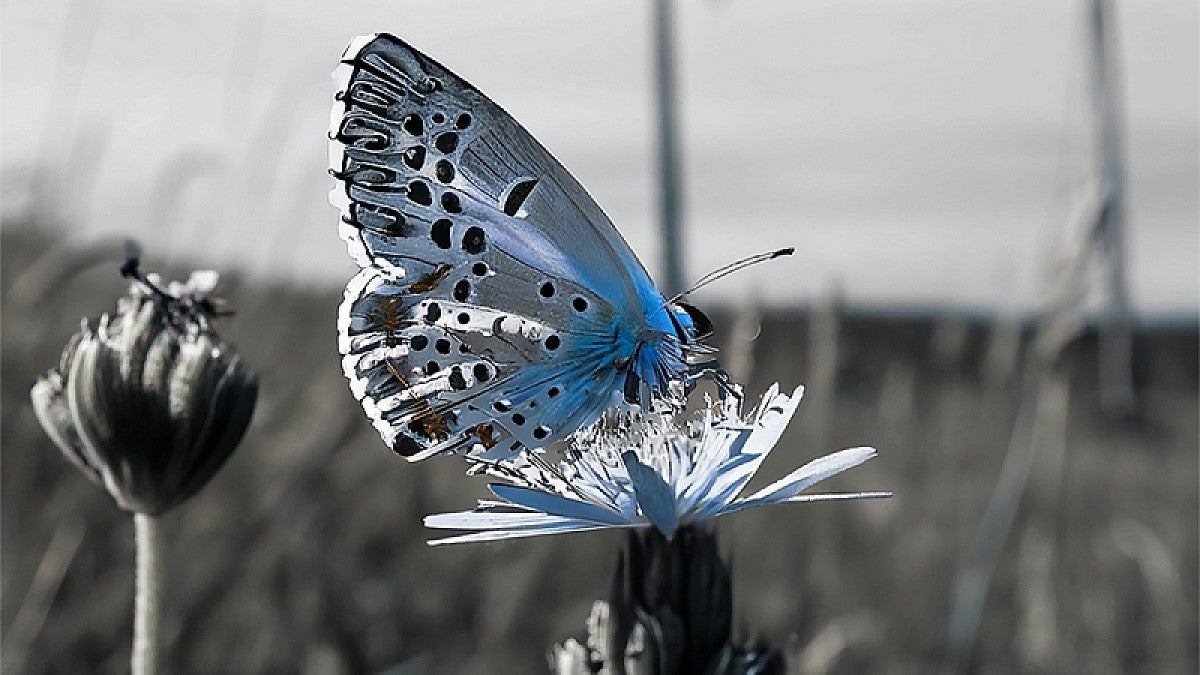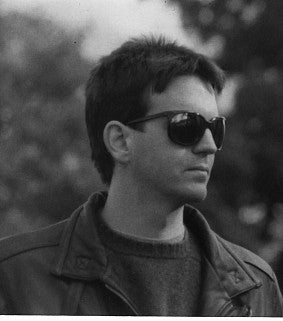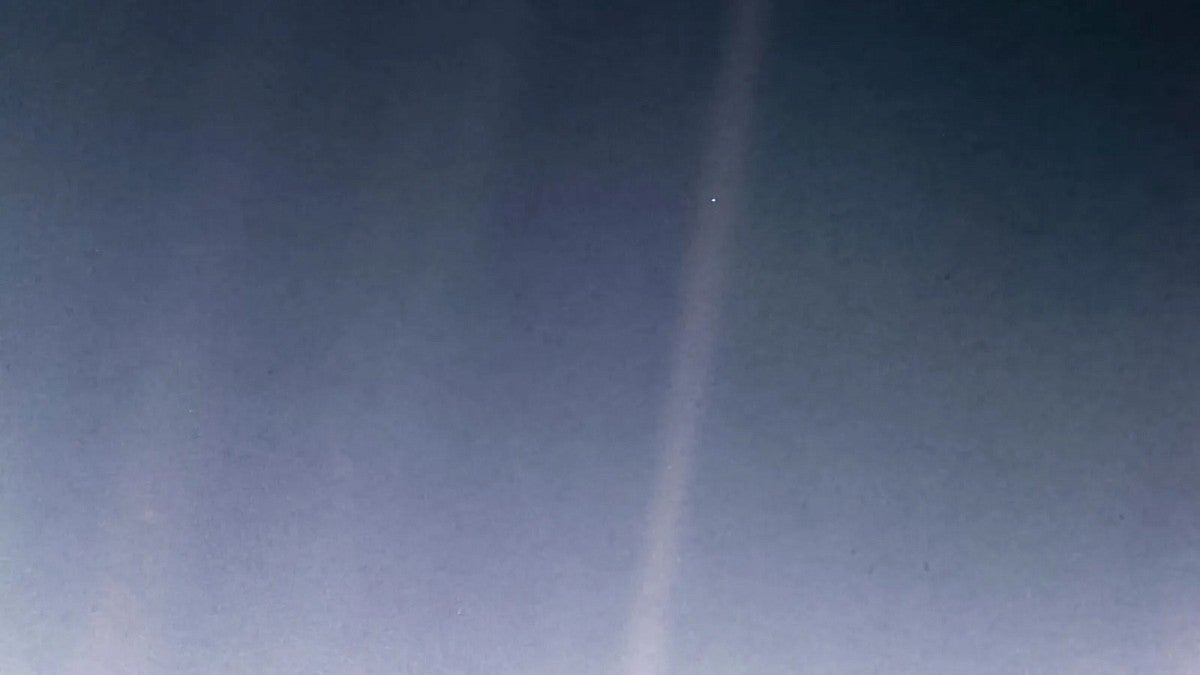
April 22, 2024 - 9:00 a.m.
It’s no coincidence that University of Oregon alumnus Ross West (MFA, ’84, creative writing) is releasing his new book, “The Fragile Blue Dot: Stories from Our Imperiled Biosphere,” on April 22, also known as Earth Day. In the book, West tackles complicated environmental issues through 15 timely and thought-provoking stories that explore how climate change affects everyone.
CAS caught up with West to learn more about the book and how West became an environmental writer. He shares stories from his time at the UO, his motivation behind the upcoming book, and his perspective on the role of writers in advocating for the environment.
This conversation is a must-read for aspiring writers, students and anyone interested in storytelling and environmental sustainability.
Looking back at your time at UO, how did your experiences in the Creative Writing program shape your writing journey?

My skills were rudimentary at the time, but I believed that in the right environment, they would flourish, so I applied to the program. It worked. Those two amazing years at the UO were like putting a tomato plant in a greenhouse. I developed my writing as I never had before.
Are there any specific lessons or memories from your time at the UO that continue influencing your work today?
Many. One example comes from the day Ken Kesey led the creative writing seminar as a guest instructor. He was critiquing a student story in which the characters ate some cookies—carob chip cookies. This minor detail stopped Kesey in his tracks, got him railing about the world of difference between how a reader would respond to a carob chip versus a chocolate chip cookie. It was a beautiful rant. This microscopic focus on the word-by-word, choice-by-choice production of prose, delivered with Kesey’s inimitable roaring vehemence, really drove home to me the importance of every decision a writer makes.
What are the most significant benefits a liberal arts education has provided you as a writer and individual? How has it shaped your perspective on environmental issues and storytelling?
People have been creating and compiling knowledge of every kind for thousands of years. My undergraduate and graduate liberal arts education exposed me to a tiny fraction of this material and in doing so vastly broadened the limited horizons of my childhood. But even more important, this exposure helped me appreciate the work of the scholars, scientists, creative writers, and others who quite literally wrote the books that fill the libraries; they have dedicated careers to exploring every aspect of our world at a level almost beyond imagining. It is humbling to realize how much is known and available for learning. Like Isaac Newton, we all stand on the shoulders of giants.
The arts play an essential role in this cultural advance. After Hiroshima, when people faced the specter of planetary annihilation from atomic weapons, the arts responded with novels and short stories, poetry, films, and all those wonderful Doomsday episodes of “The Twilight Zone.” Today we’re staring into the bared teeth of climate change. The characters in each of the stories in “The Fragile Blue Dot” navigate lives buffeted by the challenges of global warming—confusing, complex, daunting challenges different from those faced by any previous generation.

Your upcoming book focuses on climate issues, timely considering its release on Earth Day. What motivated you to take on this topic, and how do you hope your book will contribute to the conversation surrounding environmental sustainability?
Two experiences fired my dedication to this project. I served for a decade as the UO science writer and was a member of the National Association of Science Writers at a time when concerns about global warming were coming to a boil. I took part in vigorous debates with other writers and journalists regarding how to best communicate climate-related information to the public. Just the facts? If so, what facts—the scary ones, the hopeful ones? Or maybe a more emotional appeal—the forlorn polar bear on a shrinking ice floe approach. Where is the point of overload, when the constant pummeling with bad news no longer informs readers, listeners, viewers, but numbs them with crisis fatigue?
I also had the pleasure of working as the text editor on both editions of the Atlas of Yellowstone (2012, 2022), produced largely by the extremely talented group in the UO InfoGraphics Lab and Department of Geography. The atlas features a section on climate change that graphically depicts the past 100 years of Yellowstone climate data in 10- and 20-year snapshots along with projections extending to the end of the present century—a relentless march of ever-higher, ever more devastating temperatures. A melting glacier in Greenland is a matter of great concern, of course, but it is a bit abstract, a bit far away; this was Yellowstone, a place I can drive to, a place I love. Looking at those maps was like seeing my own house on fire.
I’m a writer, not an ecologist or a geophysicist, so my response to the pending cataclysm—what I can do—is to write about it. I hope my stories prompt people to think deeply about our unprecedented situation, about the decisions that will shape our future, about consequences and unintended consequences.
What role do you believe writers play in advocating for the environment/climate?
A good deal of climate-related fiction, or cli-fi, suffers either from unremitting gloom and doom or from the provision of cloying facile solutions. The most resonant stories, to me, are subtler and fall into neither of these traps. They ask questions rather than answer them. That is what I have tried to do in my stories. Fitzgerald wasn’t advocating for or against the Jazz Age; it was a given, beyond any one person’s control—even Jay Gatsby’s. But how did people in that era respond to their world, the impulses and conflicting pressures they felt, the values and beliefs they tried to cling to, the decisions they made? Now that is interesting territory. Similarly, we are careening ever further into a period of vast environmental change. How will we deal with the challenges of our day? What struggles will we face, what painful lesser-evil choices will we be unable to avoid, what compromises and rationalizations will we make, what courage will we muster? Fiction is exquisitely well-suited for exploring these kinds of questions.

What advice would you offer aspiring writers and students, including those who want to write about environmental sustainability?
Read as much and as widely as possible. Learn science. Get good with numbers and statistics. Studying history (broadly conceived) provides a valuable baseline understanding of human propensities and pomposity; our barbarities, achievements, and persistence; our shameful stupidity as well as our stunning, indomitable creativity. The complementary study of human psychology provides another useful mirror, an inside-out take on the same material. For example, University of Oregon Department of Psychology Professor Paul Slovic’s remarkable work on the perception of risk (highly recommended) added a whole new layer to my understanding of who we are. Bonus tip: become familiar with the definition of the word presentism.
—The launch party for his book is scheduled for 7 p.m. on Thursday, April 25, at the Veteran’s Memorial Building in Eugene.
— Read more about the book in Oregon Quarterly.
— By Harper Wells, College of Arts and Sciences
